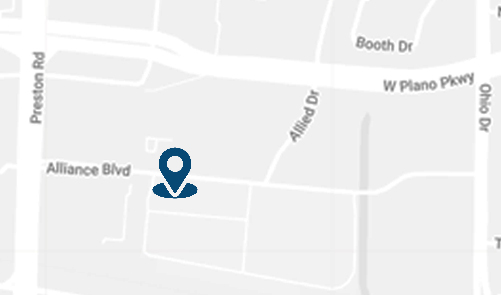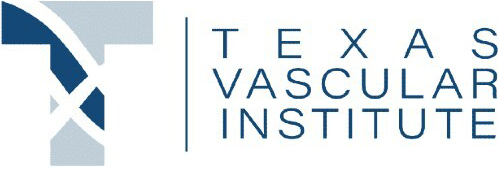By: Dr. Dev Batra | 01.29.23
Vein disease refers to any problem or condition that affects the part of your circulatory system that returns deoxygenated blood from your tissues back to your heart. The symptoms depend on the specific vein condition, but it’s important to learn to recognize the most common symptoms.
At Texas Vascular Institute, located in Dallas and Hurst, Texas, interventional radiologist Dr. Dev Batra and our team are well-versed in the different types of vein disease and their symptoms. So you can get medical treatment before any vein condition becomes a major health problem, we’ve put together this guide to help you recognize the warning signs.

The causes of vein disease
Age increases the chances of developing vein problems. In fact, one-third of Americans over 45 have some kind of vein disease. Two of the most common issues are valve problems and blood clots.
Since veins return blood to the heart against the pull of gravity, they need mechanisms to keep blood flowing in the right direction: upward. That is achieved through the use of unidirectional valves — once the blood flows past them, they snap shut, keeping the blood from flowing backward.
If the valve becomes damaged, though, blood flow can move backward. When this happens, it stagnates, pooling around the valve and raising the pressure in the vein. If you don’t exercise or sit or stand for long periods, the pressure on the valves can damage them. So can smoking, which makes the vein walls stiffer, increasing pressure.
Improper blood flow can result in blood clotting, either in a superficial vein or in a vein deep within the tissue, usually in the legs. Clots can cause valve damage and increase the risks of other health problems if they break free.
Types and symptoms of vein disease
Let’s look at some of the most common types of vein disease and their symptoms.
Varicose veins
When blood pools or stagnates, the pressure can push the vein up to the skin’s surface, where it bulges in blue or red ropy strands. These are known as varicose veins. They’re quite common and occur about twice as much in women as in men. Varicose veins can appear anywhere, but they’re most common in the legs.
While varicose veins are not generally a medical hazard, they can come with uncomfortable symptoms, which include:
- Pain
- Swelling
- Stiffness
- Itchiness
- Burning sensation
- Achy legs or cramps
- Discolored skin
Symptoms may not be severe in the morning since you’ve elevated your legs all night, but they can worsen once you’re standing. Though most varicose veins are removed for cosmetic reasons, they can lead to skin ulcers, infections, clots, and bleeding when left untreated.
Chronic venous insufficiency (CVI)
CVI occurs when valves fail and blood pools in the legs. Varicose veins are the most common symptom of this condition. Other signs include:
- Swelling in ankles and lower legs
- Aching or tiredness in legs
- Skin that appears leathery or shiny
- Skin itchiness or flaking
- Ulcers
If CVI isn’t treated, the legs can swell, and the tiny blood vessels can burst, turning your skin reddish-brown, especially near the ankles.

Deep vein thrombosis (DVT)
Researchers estimate that more than 900,000 have DVT and as many as 30% of those will die within one month of diagnosis of this potentially life-threatening condition. If you have varicose veins, you have up to a 430% greater risk of developing DVT.
DVT occurs when blood clots develop in one of your deep veins. These types of clots are a major health threat, as they can detach from the veins and move through the bloodstream to the lungs causing a pulmonary embolism characterized by shortness of breath, difficulties with physical exertion, and even death. About one in four DVT clots left untreated will detach.
Symptoms only present in about 50% of patients who have DVT. For those who get them, they include:
- Leg pain
- Swelling
- Leg pressure
- Skin warmth
- Redness
- Tenderness
If you have any of these symptoms, make an appointment to see our team as soon as possible to prevent life-threatening complications.
Are you experiencing symptoms of vein disease? It’s time to make an appointment with Texas Vascular Institute in Dallas and Hurst, Texas. Give our office a call at 972-646-8346, or book online. Time is of the essence, so don’t delay.
Read more blogs
Why Are My Veins Blue?
Wondering why your veins look blue under your skin? Learn the science behind vein color, how light affects what you see, and what it means for your health.
10 Warning Signs Of Poor Circulation And How To Fix It
Have you ever noticed your feet always feel cold, or your legs cramp up when walking? These could be warning signs of poor circulation, a condition that can impact your daily life and overall health.
Leg Pain Keeping You Up at Night?
Are restless, aching legs keeping you from a good night’s sleep? Nighttime leg pain can interfere with your rest, affecting your health, mood, and ability to take on daily activities. While there can be various causes, nighttime leg pain - especially when accompanied by feelings of heaviness, throbbing, or itchiness - could point to a vein issue.
WHAT OUR PATIENTS
have to say
Texas Vascular Institute always appreciates feedback from our valued patients. To date, we’re thrilled to have collected 378 reviews with an average rating of 5 out of 5 stars. Please read what others are saying about Texas Vascular Institute below, and as always, we would love to collect your feedback.
Leave a Review
Amazing Practice
I'm very particular with my Healthcare and tend to be cautious with referrals to specialists. This office is amazing from the first point of contact. Their staff are friendly, professional and highly knowledgeable. Then the Dr is just as amazing as his staff, absolutely brilliant. Office manager Jessica has this office running like a well oiled machine and does so with a smile, an air of confidence, kindness and professionalism. Love this practice!!
- Richard G.

Beyond Thankful
Dr Batra and his staff are amazing! We are so grateful to have found him. Everyone is so kind and so caring and Dr Batra explains everything so well and does procedures with excellence. Beyond thankful to be under their care!!!
- Bitsy P.

Gold Standard
This is a gold standard for how a medical practice should be run. I was promptly seen at my scheduled time, my ultrasound was thorough and I received plenty of attention and care from the staff and Dr.Batra.
- Weronika L.
INSURANCE
We accept most major insurance plans. Please contact the medical office for all insurance related questions.









8330 Meadow Rd #100
Dallas, TX 75231
For Appointments: 972-798-4710
General Inquiries: 972-646-8346

809 West Harwood Rd, Suite 101,
Hurst, TX 76054
For Appointments: 972-798-4710
General Inquiries: 972-646-8346

4716 Alliance Blvd Suite #180,
Plano, TX 75093
For Appointments: 972-798-4710
General Inquiries: 972-646-8346

